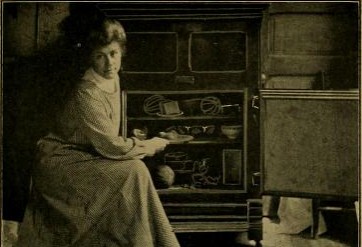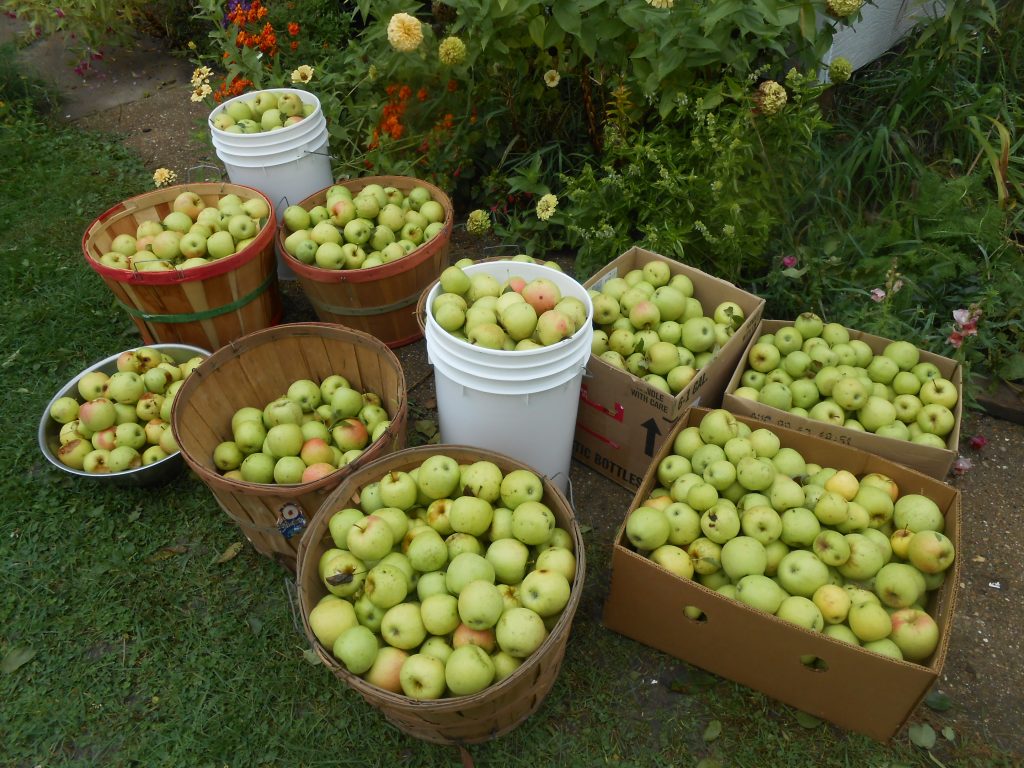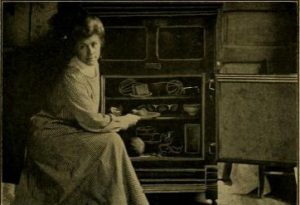
How adaptable and creative is your cooking?
…the wise farm housekeeper will seek to know ways of cooking beans, cabbage, turnips, asparagus, the precious Irish potato and other vegetables and the fruits that grow on the farm in abundance. -1905
Choosing to be a homemaker is often a choice to have less income, so strategy is essential when it comes to grocery shopping and cooking. Learn to cook with the simplest, most basic ingredients available to you. The bonus is that they are often the cheapest. These include staple ingredients, like potatoes, beans, and vegetables, as well as those foods that are the foundation of other meals, like breads and sauces.

If you have a garden, you should learn creative ways to cook with the abundance you grow. I grow several kinds of fruit on my property, like raspberries, grapes, apples, and peaches. As my fruit trees and bushes matured and started producing, we began eating more and more fruit. I eventually realized that I had to modify the way I cooked. A body needs only so much jam.
It didn’t make sense for me to make desserts that used store-bought ingredients like chocolate chips, cool whip, and instant pudding. I had fruit that needed to be used! Now I make primarily fruit-based desserts, like raspberry crisp, baked apples, and grape pie. (It’s such a sacrifice.) The fruit is basically free to me, so the dishes I make are fairly inexpensive, since fruit is the main ingredient. Of course, a dessert loaded with fruit is unquestionably a healthy one–just take away the butter and sugar and what do you have? A fruit salad.

It’s also important to train yourself to take advantage of terrific sales and the unexpected ways you find yourself with extra food. Maybe you’ve discovered some abandoned berry bushes in a vacant lot. Or perhaps someone offers you some meat after a hunting trip, or you score some unlabeled cans at the salvage grocery store for a song. Don’t be quick to pass it up because you’re not sure what to do with it. Use a variety of cookbooks, find some good resources online, and seek the advice of more experienced home cooks.

An example of creative cooking
I recently bought a big box of dented cans for $3.95. Included in the box was a large can of yams in syrup. This is not something I would ever, ever buy. I figured that one dud out of 30+ cans was still a bargain and I didn’t need to feel guilty for tossing it. But, of course, I did feel a little guilty. I searched online and found a recipe for sweet potato bread. A little flour, sugar, and eggs turned my blech-y yams into two loaves of delicious quick bread. One I took to a brunch potluck, and the other we had for breakfast.
My next post will continue this thought, with an example of how I found a use for bargain peanuts. I’m sure the suspense will be nearly intolerable.
Discover more from A Housewife Writes
Subscribe to get the latest posts sent to your email.
8 Comments;
We made the mistake of telling friends we liked boiled peanuts. They came to visit and brought a bushel of raw peanuts!!!! I researched and found a way to can them. And we still are eating them… a pint at the time…. lol
A bushel!! That’s a lot! It’s like the gift that keeps on giving. 😉 I’ve always been curious but have never had an opportunity to try boiled peanuts.
With just two of us, I’m regularly challenged to find a new way to use leftover items. Cabbage springs to mind because I just did that last week. I bought a head for cole slaw. It was a big one! I used more and made fried rice. Still had some do I mixed it with ground beef and made some filling for bierocks. Once in there, it could be frozen for another meal.
I know the feeling! I have a giant head of cabbage in my fridge right now (St Patrick’s sale) so it’s making frequent appearances in different forms, lol. One simple side dish I’ve been making regularly is sliced cabbage sauteed with bacon.
There is also the element of challenge in this type of adventure that just sticks in the bones!
You know I love a good challenge!!
Sweet potatoes, or yams, marvelous in a pie! I am enjoying catching up with your blog! Thanks!
Surprised to see two references to “online” from the early 1900’s, when there was not access to computers…